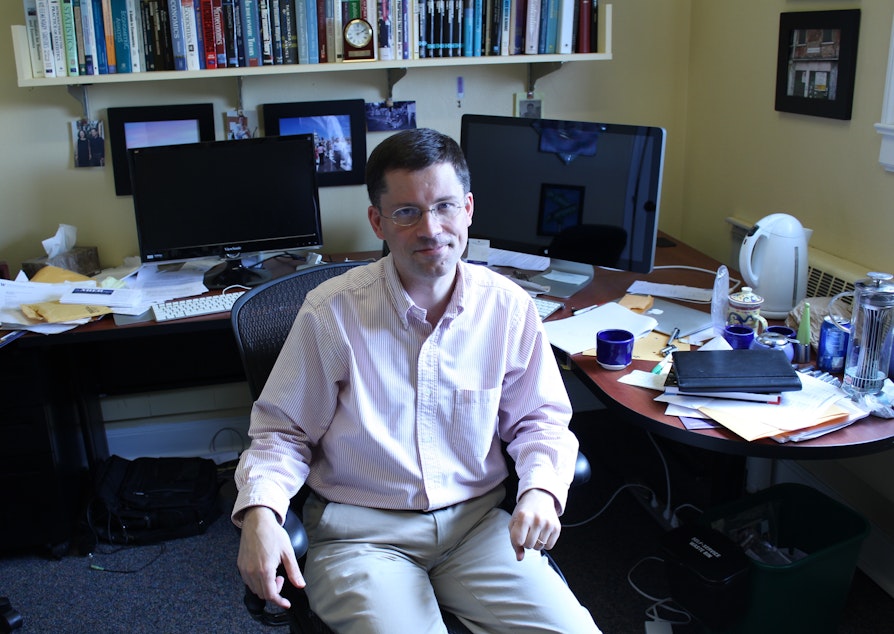Researchers Probe Pros and Cons Of Seattle’s $15 Minimum Wage

Researchers from the University of Washington and the state are hoping cold, hard data can help settle the heated debate over the costs and benefits of raising the minimum wage in Seattle.
The team of nine investigators will watch closely to see how the wage increases, set to phase in beginning April 1, affect businesses, earnings, employment and low-income families in particular.
Mayor Ed Murray and the Seattle City Council ordered the study when the minimum-wage ordinance was passed in 2014. At the time, no city had ever raised its minimum wage to $15 an hour.
“We are in uncharted territory,” said Jacob Vigdor, Daniel J. Evans Professor of Public Affairs at the UW and the researchers’ principal investigator.
Although there’s a significant body of academic literature about previous minimum-wage increases, the studies haven’t settled any debates, according to Vigdor. Some economists consistently argue that increases don’t have negative effects on the economy. Other economists take the opposite position.
Sponsored
“And as often happens in economics, you have two people using different methodologies, neither method is perfect, they both have flaws, and the whole academic discourse resembles a shouting match, people saying my method is better, no my method is better,” said Vigdor.
Research also has tended to focus only on how wage increases affect employment numbers.
Seattle’s study will look at how the increases affect the city more broadly. For example, businesses will be asked whether they are raising prices, cutting staff or staffing hours, or moving operations in or out of the city.
The researchers, seven from the UW and two from the state Department of Employment Security, will also follow 40 low-income families to see how their incomes, working hours, job prospects and cost of living are affected.
Vigdor notes that a rising minimum wage could actually have a downside for some families. As their incomes rise, they may lose eligibility for some public assistance, like food stamps. They may also see working hours cut or have more difficulty finding jobs.
Sponsored
“Our goal is to make this a data-driven conversation about what is the good that is being done, what is the harm that is being done, and are we happy with that tradeoff,” Vigdor said.
Vigdor said the study is scheduled to continue for five years, with regular updates to the city as the increases roll out.
About 100,000 people in Seattle earn less than $15 an hour, according to a recent UW study. They work mostly in restaurants and hotels, retail, and health care.
When the minimum-wage increase was being debated in Seattle last year, the mayor’s office commissioned researchers at the University of California-Berkeley to review the existing literature on minimum-wage increases.
The study found that “the weight of evidence suggests that moderate minimum wage increases have insignificant to non-existent negative effects on employment and hours, reduce worker turnover and worker retention, and result in small, one-time price increases in heavily-affected industries, such as restaurants.”
Sponsored
But the authors went on to say that they could not predict what would happen when minimum wages are raised “significantly beyond current local, state or general mandates.”
Vigdor characterized the authors as being in the group of economists who consistently find no negative effects from minimum-wage increases.
As to which camp he belongs to, Vigdor said he has not published on the minimum wage and is coming to the issue with a fresh perspective.
“I'd say my own personal view is that the minimum wage is a mixed bag, and to really think about whether it's a good idea or not we have to open up the bag and look inside to know for sure,” Vigdor said.

